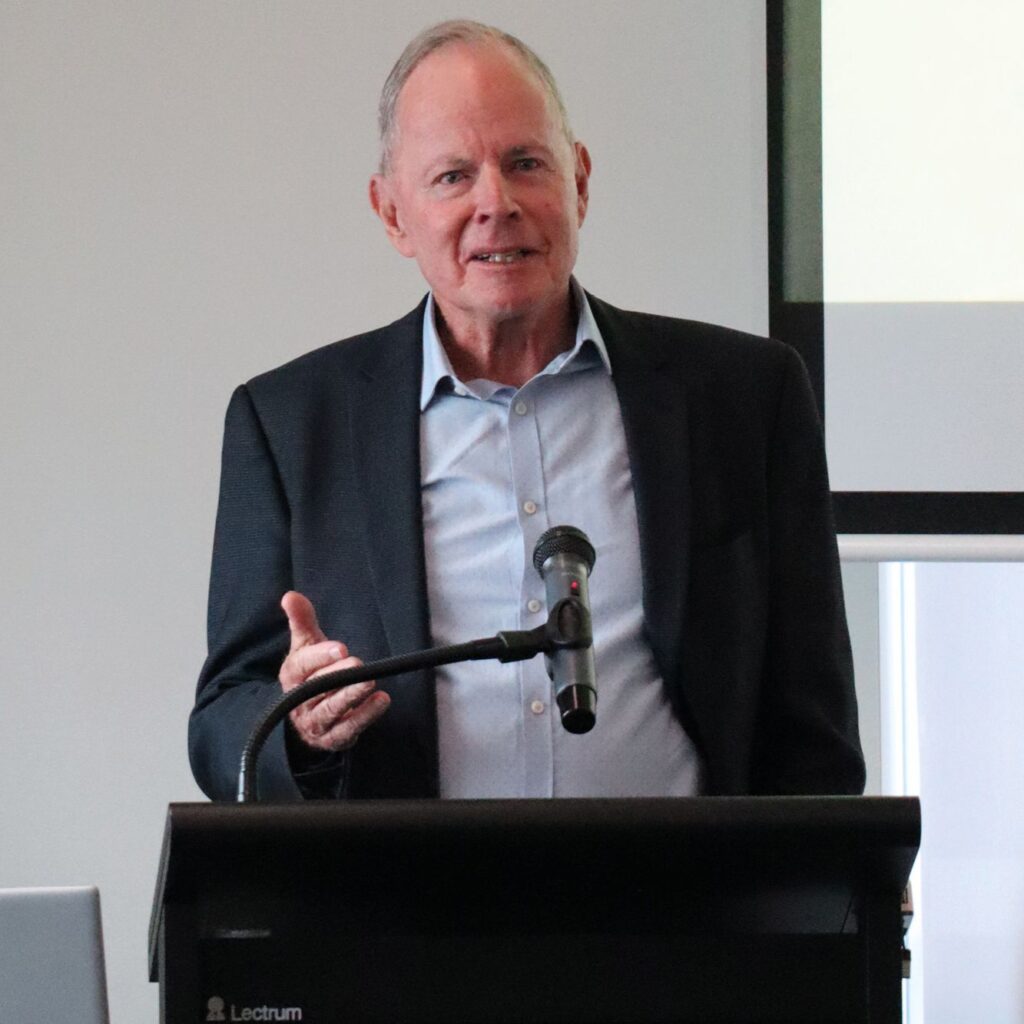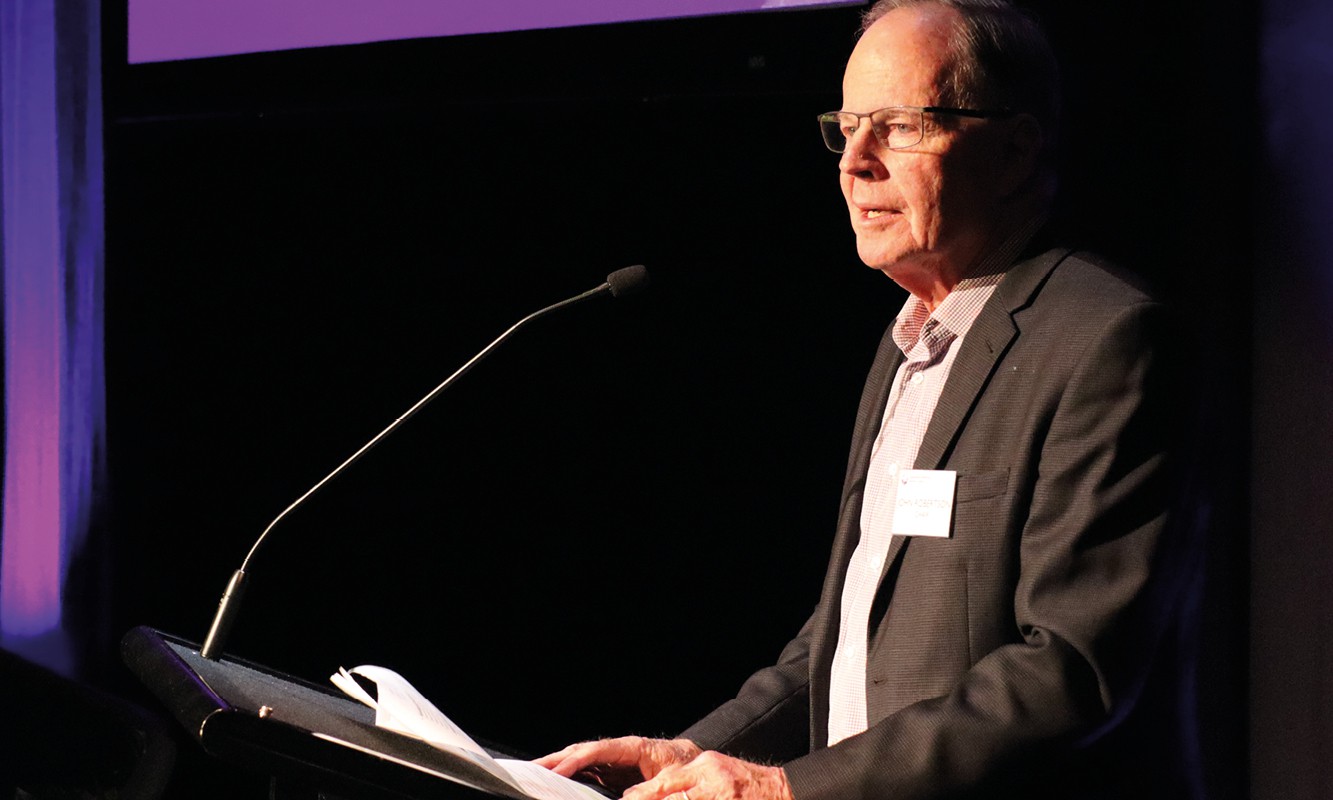One of the state’s most respected legal minds has completed another chapter in his distinguished career.
John Robertson stepped down as chair of the Queensland Sentencing Advisory Council (QSAC) in August after five years at the helm.
During his tenure, the retired District Court Judge chaired 56 meetings, oversaw four final Terms of Reference reports, delivered Judge for Yourself sessions to students, led countless consultation sessions, and conducted numerous media interviews.
Proctor spoke to John about this period of his legal life and what’s next for the 75-year-old.
Why did you become involved with QSAC? How were you able to use your insights and experience?
Throughout my career both as a solicitor and judge, I had a deep intellectual interest in the philosophical and moral principles underpinning the art of sentencing.
I thought that many of our basic sentencing principles, for example, general deterrence, which are enshrined in our legislation and the common law, came from a societal approach that was not really relevant to modern life, and I saw the Council as a vehicle to explore those ideas and to think about reform.
I was also attracted to the outreach aspect of the role. As a new judge in Ipswich in the 1990s and with the permission of the then Chief Judge, I established a relationship with the local court reporter (none other than Proctor’s Tony Kiem) and together we presented a series of in-depth pieces in the Sunday paper, which tried to explain sentencing to the community and to move away from the popular binary view that some other people are bad (and thankfully I am not one of them) and punishment is the only way to stop them committing crimes.
It was very well received but, the debate over sentencing is still conducted, at least in most media, on the basis that heavier sentences and criminalising more conduct is the only way to stop what is often a fictional statement to the effect that we are in the grip of a crime wave.
At the Council, I was privileged to work with some of the brightest people I have ever met. My advantage was that I knew a lot of judges and magistrates and we were able to establish a great working relationship with the Courts which was a tremendous advantage when responding to a reference from the Attorney.
As the Chair, I was in a good position to answer questions about sentencing from journalists and the community, and to deliver papers at conferences and seminars dealing with topical issues relating to sentencing.

What were the highlights or key achievements during your tenure?
I commenced in 2018 at a time when the Council was well into a reference from the Attorney relating to sentencing for child homicide. For obvious reasons, it was a highly contentious and difficult subject. Within a few weeks of being in the comparatively protected environment of the judiciary, I found myself talking with families of victims of this particularly heinous form of offending. I learned so much from them then and from victim support groups which continued over the years as we tackled other contentious references such as the sentencing for assaults on emergency workers during the pandemic!
As I intuitively understood, all most of these people wanted was the opportunity to be truly listened to and heard, and to understand in a straightforward way why a particular sentence was imposed in a particular case.
For me the obvious highlight of my time with the Council was in the many friendships I developed with such a fine group of professionals who worked in the secretariat.
I learnt so much about research methods and policy development, and how to communicate with our many and varied stakeholders.
It was a privilege for me to work with three brilliant Directors in my time and I am very grateful to them for their support and friendship during my five-year tenure.
I suppose every advisory body wishes that the policy makers would listen more and implement our recommendations, but that is not our role.
I also had (I think!) a good working relationship with two Attorneys and their shadows, and with members of the department who provided support and guidance.
What’s next for you?
I believe strongly in the need for ageing people to keep intellectually and physically engaged in life – if that is possible.
I have a large family and many grandchildren and swim regularly, love golf and yoga and epic hiking, although I realise my commitment to this last activity has to give way to the reality of an ageing body, which was profoundly brought home to me as I hiked in Patagonia in Chile over seven days in February this year with my youngest son.
I have been privileged to always work – as a clerk, a solicitor with my own practice, as a judge, as Chair of the Council and a part-time judicial member at QCAT – in occupations that I have loved.
I have been very fortunate, and the Queensland Law Society has played a significant part in that. I will always be grateful to our Society.
John Robertson was admitted as a solicitor in 1973 and formed his own firm in 1978, which ultimately became Robertson O’Gorman. He was Deputy President of the Queensland Community Corrections Board from 1991-1994. In 1994, he was appointed as a District Court Judge. He served in Ipswich, Brisbane, and Maroochydore until retirement in 2018. He was a Judge of the Children’s Court of Queensland for his whole judicial career and President of that Court from 1999-2001. Throughout his career, he has written and lectured extensively on issues relating to sentencing and the criminal law, including restorative justice, sentencing law, advocacy, and the criminal law and the media. He is the author of the Queensland Sentencing Manual which was first published in 1999. He is a part-time judicial member in the Misconduct Division of the Queensland Civil and Administrative Tribunal.








Share this article